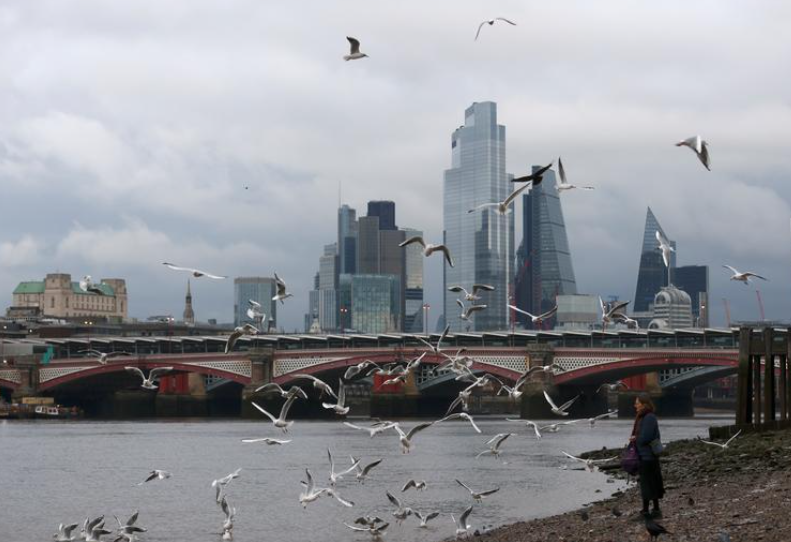UK economy grew in Q3 but recession threatens


The United Kingdom's gross domestic product, or GDP, grew by a record 16 percent between July and September, while government borrowing surged, according to figures released on Tuesday by the Office for National Statistics.
It is the nation's fastest quarterly increase since records began in 1955, and the new figures from the ONS are ahead of initial estimates of 15.5 percent growth.
The third-quarter recovery was still not enough to make up ground lost in the preceding three months due to the novel coronavirus pandemic. There was an 18.8 percent slump in the second quarter, when much of the economy was shut down.
The data also showed government borrowing quickened last month to pay for the escalating cost of the virus crisis.
Government borrowing rose to 31.6 billion pounds ($42 billion) in November. This was a 26 billion pound increase on November 2019, which is the third-highest borrowing in any month since monthly records began in 1993.
Jonathan Athow, deputy national statistician for economic statistics, said: "Today's GDP figures show a broadly unchanged, though slightly stronger picture. Economic output initially fell by around a fifth when the lockdown was imposed in the spring and then recovered around two-thirds of that lost output through the summer.
"Household incomes grew during the summer as many workers returned from furlough. As expenditure also grew, household saving slowed from last quarter's record level but remains substantially higher than its previous historical peak."
Many parts of the UK, including London and its nearby areas, are now back under severe lockdown restrictions as the government seeks to control the spread of a new variant of the virus.
The Bank of England forecast that GDP would shrink again in the fourth quarter, with additional concerns that the UK will not achieve a trade deal with the European Union before its Brexit transition deadline of Dec 31.
Previously published figures showed the economy almost slowed to a halt in October, and the new lockdowns across the country are now threatening to cause another recession, according to a Reuters report.
Capital Economics, a consultancy, told Reuters that "a double-dip recession was a clear possibility" if the latest COVID-19 restrictions continue into 2021.
The International Monetary Fund has said the UK will likely have to raise taxes when the crisis eases.
Chancellor of the Exchequer Rishi Sunak said the government would tackle the deficit in time. "When our economy recovers, it is right that we take the necessary steps to put the public finances on a more sustainable footing so we are able to respond to future crises in the way we have done this year," he said in a statement.

































